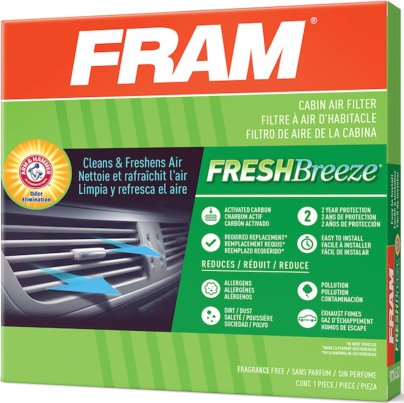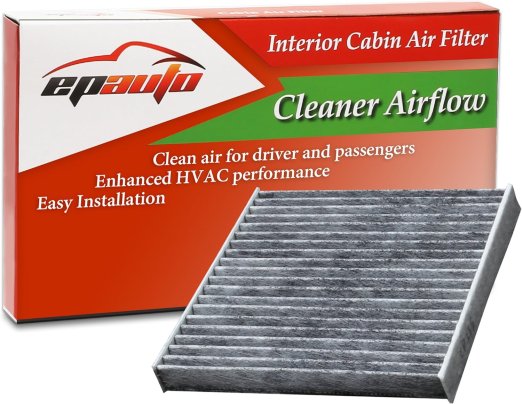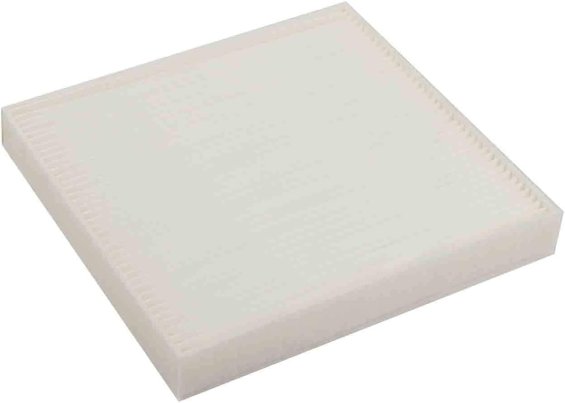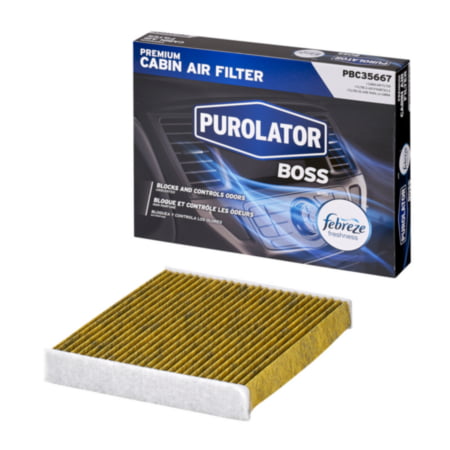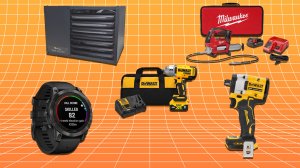We may earn revenue from the products available on this page and participate in affiliate programs. Learn more ›

Cabin air filters clean the air that gets into a car’s cabin. They’re placed in a vehicle’s ventilation system and trap dust, moisture, moisture, soot, and even bugs. Cabin air filters are real lifesavers for people who hate to deal with the smell of dust, dirt, and exhaust fumes in their cars. The downside is that they get clogged over time and you need to replace them. Our review will show you some of the best cabin air filters that can replace your clogged-up cabin filter.
Summary List
- Best Overall: FRAM Fresh Breeze Cabin Air Filter
- Best Value: EPAuto CP285 Premium Cabin Air Filter
- Best for GM Vehicles: ACDelco CF188 Cabin Air Filter
- Best Lifespan: Spearhead Odor Defense Breathe Easy Cabin Filter
- Honorable Mention: Bosch 6057C HEPA Cabin Air Filter
- Honorable Mention: Hengst E2998LC Cabin Filter
- Honorable Mention: Purolator PBC35667 Cabin Air Filter
Best Cabin Air Filters Reviews & Recommendations
Best Overall
FRAM CF10134
Pros
- Allows for more airflow
- Keeps the air clean without influencing the performance of the ventilation system
- Possesses a special is the mixture of baking soda and carbon
Cons
- Large and thick size makes installation tough
- Some complained about the filter not delivering a fresh fragrance as stated in the product description
Best Value
EPAuto CP285
Pros
- Contains activated carbon and baking soda, which absorb odors from the ventilation system
- Easy to install and fits perfectly in its holding unit without leaving any gaps
- Prevents premature wear of the vehicle’s HVAC system
Cons
- Fewer folds (pleats) than other cabin air filters
- The baking soda becomes useless after a few months
Best for GM Vehicles
ACDelco CF188
Pros
- Your car will always smell fresh
- Protects from harmful air pollutants
- Easy to install
Cons
- Not a carbon air filter and therefore doesn’t effectively prevent bad smells
- Users state it doesn’t fit some of the vehicles advertised by the manufacturer
Best Lifespan
Spearhead Breathe Easy Cabin Filter
Pros
- Three filters in one: a dust filter, an antimicrobial filter, and an absorption filter
- Removes odors
- Overall good durability
Cons
- Some users had difficulties fitting the filter into its home
- Lacking instructions
Honorable Mention
Bosch Automotive 6057C Cabin Air Filter
Pros
- Highly efficient at trapping small particles
- Features a melt-blown electrostatic layer and an extra static cotton layer to ensure excellent results
- Structural ribs are added to make the filter more stable and durable
Cons
- Might reduce airflow due to thickness
- The instructions are a little confusing about which side goes up
Honorable Mention
Hengst E2998LC Cabin Filter
Pros
- Advanced technology that helps with trapping even the smallest particles
- Removes allergens and keeps bacteria and mold far away from passengers
- Easy to install
Cons
- Still might experience strong smells
- Some buyers complained about having to replace the filter sooner than expected
- The thin layer tends to wear off quickly
Honorable Mention
Purolator PBC35667 Cabin Air Filter
Pros
- Doesn’t reduce the airflow and allows for your HVAC system to work flawlessly
- Installs in almost all popular vehicle types
- Simple installation that won’t take up a lot of time
Cons
- More expensive than other regular filters available on the market
- Even though it’s very universal, users still have to double-check dimensions
Our Verdict on the Best Cabin Air Filters
We went for the FRAM CF10134 as our top pick because it’s the best filter to keep your vehicle smelling fresh and it gets rid of 98 percent of pollutants that cause allergic reactions.
Our budget-friendly pick is the EPAuto CP285, a reasonably priced carbon filter that improves HVAC performance.
FAQs
You’ve got questions. The Drive has answers.
A. Cabin air filters improve HVAC performance. If you’ve never replaced your factory cabin air filter, chances are that it’s clogged up and your HVAC system is not supplying enough air to your car. The HVAC system may also be noisy. Consider buying a new cabin air filter to unclog your HVAC system and improve the life of its vital componentry.
They get rid of bad odors. Do you get a musty smell coming out of your ventilation system every time you turn it on? You should consider getting a cabin air filter replacement that has activated carbon or charcoal to absorb bad odors. It can improve the air quality in your car and help alleviate symptoms of motion sickness in some passengers.
Finally, they reduce allergic reactions. If you’re constantly sneezing, coughing, or wheezing whenever you’re on a long drive, you need a new carbon air filter to take care of those allergies. The carbon air filter will trap dust, pollen, and other allergens that may affect your health.
A. Under $10: Most cabin air filters at this price range are good quality—the fact that they’re inexpensive doesn’t mean they aren’t durable. You’ll find some decent filters with activated carbon, charcoal, or electrostatic elements, and most are good for at least 12,000 miles.
$10 and up: This is the common price range for most cabin air filters, but the price barely shoots to more than $20 unless you’re getting a pack of two or more. The filters are durable and made of high-quality materials. Just like the cheaper versions, the filters in this range come in all types including particle cabin filters with no special ingredients.
A. Longevity. The average life of a cabin air filter is about one year or 12,000 miles. But that doesn’t mean you can’t get a quality product that pushes over that limit. Some filters have a life span of 30,000 miles, and some are strong enough to be reused once you give them a good wash.
Driving conditions. The filter you go for largely depends on your driving conditions. If you regularly drive through polluted urban environments, you need a cabin air filter that can get rid of musty odors and exhaust fumes. If you’re in a rural environment and your main problem is dust, you could get a less complicated cabin filter that only filters out dust and other allergens.
A. Clean your vents at least once a month, and more frequently during cold weather. When cold air flows through a hot engine, moisture droplets form in areas that receive little ventilation, promoting mold growth. That’s how you get the musty smell coming from your HVAC system.
Remember to replace your filters at least every 15,000 miles. The longer your filters are in use, the more dirt they accumulate. Eventually, they wear out. Old filters aren’t effective in preventing bad odors—they limit airflow in your vents and lead to window fogging.
When replacing an old filter, always put cardboard underneath it before sliding it out. All the dirt from the old filter will fall on the cardboard, and you’ll avoid the extra work of having to clean the dirt off your ventilation system.
A. Your cabin air filters are probably full of dirt and need to be cleaned or replaced. Cabin air filters accumulate a lot of dust and dirt with time, and the airflow automatically gets blocked. Clean the filter if it’s not worn out, or consider buying a new filter if your old one is falling apart.
A. Most manufacturers recommend that you change your cabin air filter after every 15,000 miles. You should also change it when you start to notice bad odors that won’t go away or insufficient airflow from your vents even after you wash the filter.
A. Most cars built after the year 2000 have a cabin air filter. Some European luxury cars from 1980 were also built with a cabin filter. An average car typically has only one, but luxury models have up to three filters. The cabin filter is located beneath the base of your vehicle’s windshield or behind the glove box.
